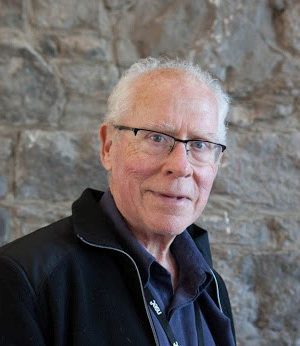Richard Thieme – Keynote

Richard Thieme - Keynote
Biography
Richard Thieme (www.thiemeworks.com) is an author and professional speaker focused on the deeper implications of technology, religion and science for twenty-first century life. He speaks professionally about the challenges posed by new technologies and the future, how to redesign ourselves to meet these challenges, and creativity in response to radical change. His speaking generally addresses “the human in the machine,” technology-related security and intelligence issues as they come home to our humanity.
Thieme has published hundreds of articles, dozens of short stories, five books with more coming, and has delivered hundreds of speeches. His pre-blog column, “Islands in the Clickstream,” was distributed to thousands of subscribers in sixty countries before collection as a book in 2004. When a friend at the NSA told him, “The only way you can tell the truth [that we discuss] is through fiction,” he returned to writing short stories. One result of which is “Mind Games,” a collection of nineteen stories about anomalies, infosec, professional intelligence and edgy realities. Another result is the novel “FOAM,” published in 2015. More edgy realities are illuminated in the recently published and critically extolled “UFOs and Government: A Historical Inquiry” to which he contributed, a 5-year research project using material from inside the military and intelligence communities to document government responses to the phenomena from WW2 to the present. It is in the collections of 65 university libraries.
Thieme keynoted the first two Black Hats and spoke in 2017 at Def Con for the 22nd year. He has keynoted conferences around the world and clients range from GE, Microsoft and Medtronic to the NSA, the Pentagon, FBI, US Dept of the Treasury and the US Secret Service. His work has been taught at universities in Europe, Australia, Canada, and the United States, and he has guest lectured at numerous universities. He recently addressed the reinvention of “Europe” as a “cognitive artifact” for curators and artists at Museum Sztuki in Lodz, Poland; keynoted “The Real Truth: A World’s Fair” at Raven Row Gallery, London; and keynoted Code Blue in Tokyo.
Presentation Title
Hacking our Humanity: Biotechnology, Biohackers and the Edges of Discovery
Presentation Overview
Government and corporate structures become more opaque while intrusion and surveillance makes the notion of privacy; 20th century old-think. The interface of humans with other information systems slights the human itself as an open system of information flow. Research in biotech/nanotech/electromagnetic fields is largely neglected in discussions of privacy and security.
Current research in neuroscience and the extension and augmentation of senses is proceeding in directions that might sound like science fiction. Progress is rapid but unevenly distributed: Some is directed by military, intelligence and corporate interests but beyond their aims, we can discern the future shape of human identity in preliminary forms. Identity – the self we think we are – is undergoing transformation. We are thin-skinned, vulnerable open systems of energy and information interacting with other systems, and as IT eroded boundaries in the geopolitical world, making “foreign” and “domestic” obsolete, biotech is eroding boundaries around individuals and species and between “natural” and “artificial.” The human body/brain is being hacked to explore radical applications for helping, healing, and harming this and future generations. It is all dual use. One area of research is the recovery of memories, the deletion of emotional charges from memories, the removal of specific memories, the alteration of the content of memories, and the implantation of new memories, some from other organisms and some false. Another area seeks to “read minds” at a distance and extract information. Another explores the use of genomes to understand and replicate thinking, feeling, and behavior patterns. Another implements mind-to- mind communication, using neuroscience to understand brains best suited for remote viewing as well as implants and non-invasive technologies that control the electromagnetic energies of the brain to enable psychokinesis, clairvoyance and telepathy. Augmentation of human abilities is being achieved by splicing information from sensors into existing neurological channels. To feel the magnetic field of the earth, see the infrared and ultraviolet parts of the electromagnetic spectrum, discern the yaw and pitch of airplanes, see and hear by going around our eyes and ears — all this means we are experience the “self” in new ways.